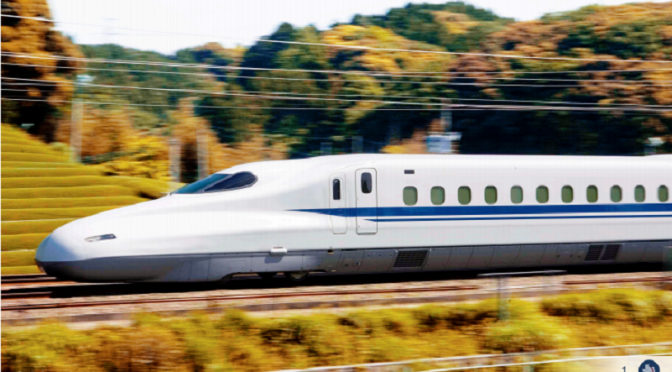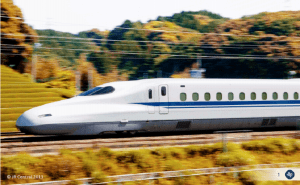There may be some exciting times ahead for the Lone Star State, especially for those living in Houston or D/FW. From the Texas Tribune…
The mayors of Houston, Dallas and Fort Worth announced Thursday their unified support for the construction of a privately funded bullet train between the two metropolitan regions.
“If successful, Houstonians will have a reliable, private alternative that will help alleviate traffic congestion and drastically reduce travel times,” Houston Mayor Annise Parker said at a press conference at Houston City Hall.
Texas Central Railway announced in 2012 its plans to build a 200 mph rail line that would transport passengers between Dallas and Houston within 90 minutes. The company has said it will not require any public subsidies to fund the multi-billion dollar project, which it is developing in partnership with a Japanese firm, Central Japan Railway.
The mayors praised the project and predicted it would aid the state economically and environmentally by reducing the number of people traveling by car.
“Not only will high-speed rail significantly reduce travel times and traffic congestion for Dallas and Houston area residents, but it will also create new, high-paying jobs and stimulate economic growth,” Dallas Mayor Mike Rawlings said.
Earlier this week I was privileged to meet with the team behind this project, known as Texas Central Railway. Sitting down with TCR President and Former Harris County Judge Robert Eckels, David Benzion and David Hagy, I was able to hear first-hand just how close the TCR is to becoming a reality. Unlike prospects in California or on the East Coast, TCR believes that that a privately-funded High-Speed rail network can be operational before anywhere else in the country.
Now this is certainly not to say that private investment is always the way to go, or that it will work for every HSR corridor. But in Texas, this route has a particular appeal. Unlike building freeways, the High-Speed Rail is less disruptive. It takes less space and by following already established freight rail corridors, would require far less land and property acquisitions. TCR will still have to obtain eminent domain authority, but they hope to use it as little as possible.
Another reason for a potential “fast track” in Texas is simply the topography of the land between Dallas and Houston. Construction costs are going to be lower than they would in California because builders face fewer natural impediments (mountain ranges, protection from earthquakes, etc.). Building time for the line would be shorter as well, with some estimates saying HSR could be constructed in as little as 3 years. Of course construction is dependent on a number of additional factors, so there’s no specific timeline just yet.
But another important concern here is safety. Private projects are almost always done faster than government, but that’s because government tends to put people over profits. If this line is built in record time with exclusively private dollars, how does TCR plan to ensure Texans that it is safe to ride, and not just a major accident waiting to happen?
“Federal and state regulators have been involved in this project since day one. Though privately funded, TCR will be regulated by the Federal Railroad Administration, just as if it were a public project.” Eckels said.
Co-designers of the Texas Project would be JR Central out of Japan, which has an impeccable safety record… no fatalities in almost 50 years of operation.
There are still many steps that need to be taken before Texas High-Speed Rail is a reality. But with the creation of TCR and other recent developments, it seems much more likely than it did a few years ago. Texas is in dire need of additional transportation options, and the TCR is off to a good start.


One thought on “Texas On “Fast Track” To High-Speed Rail”